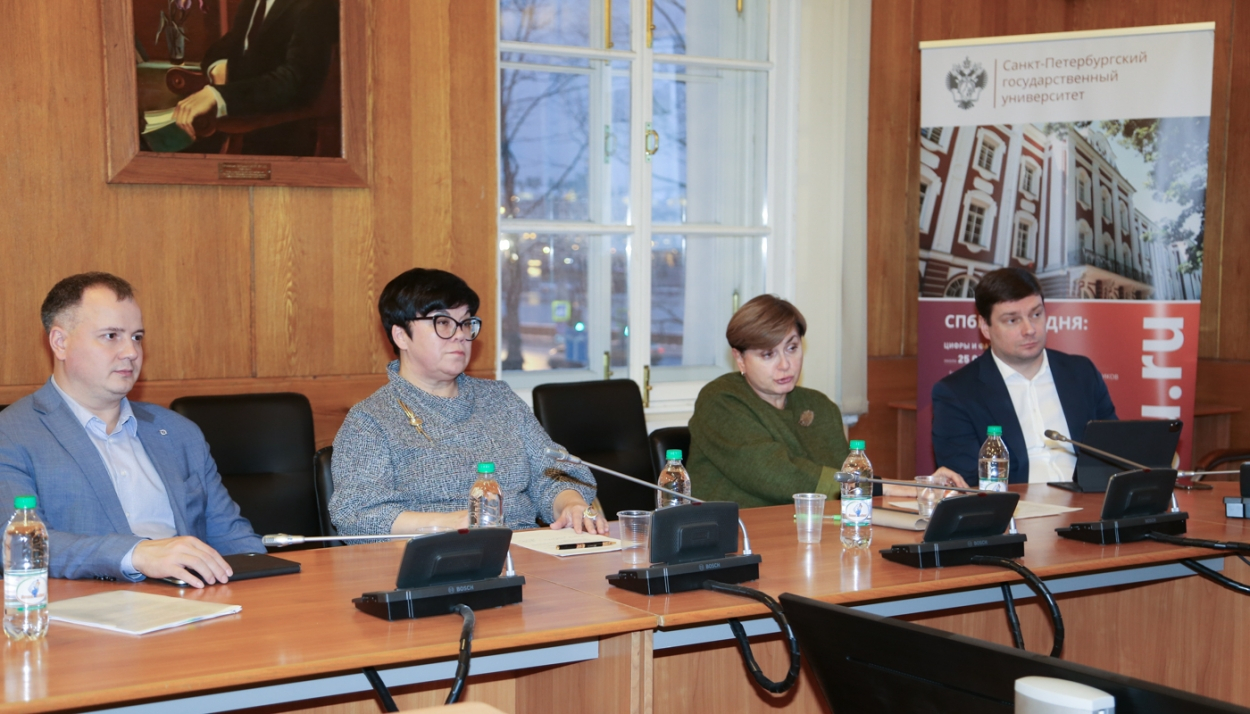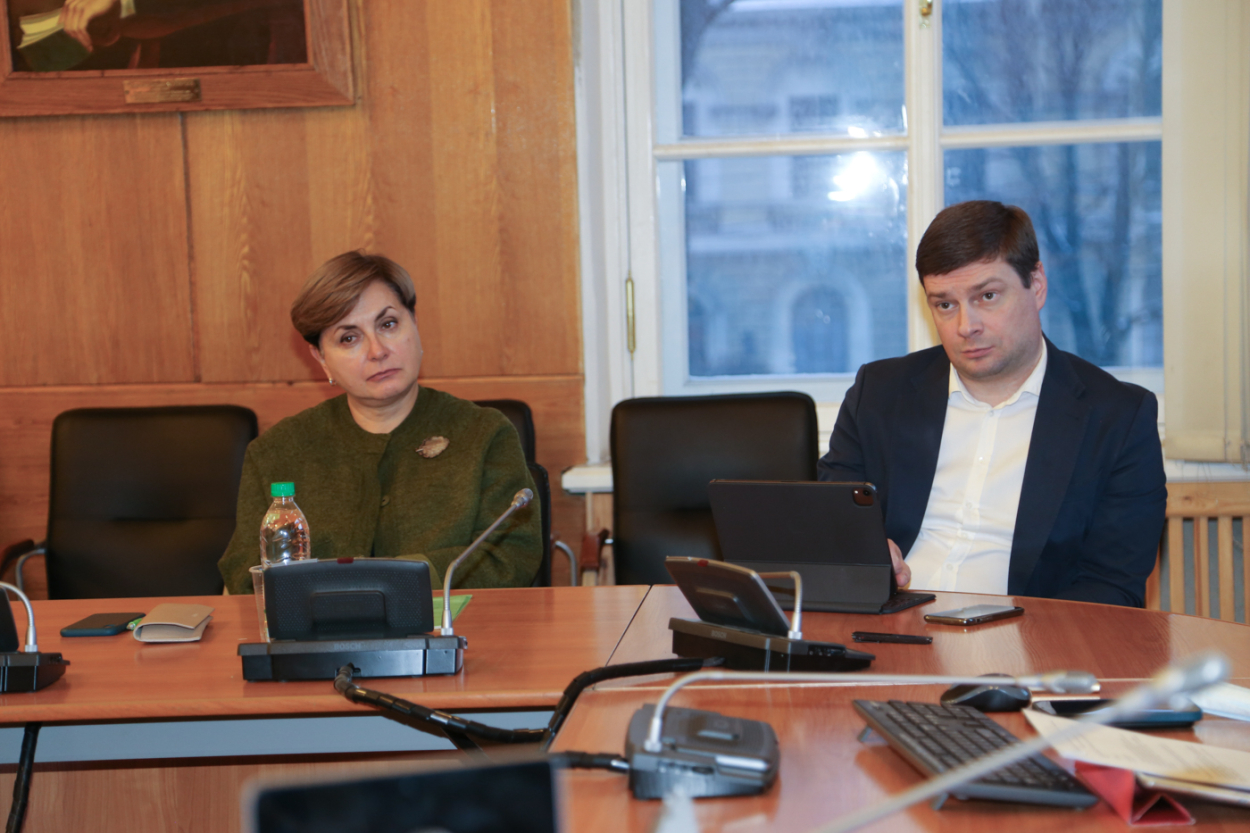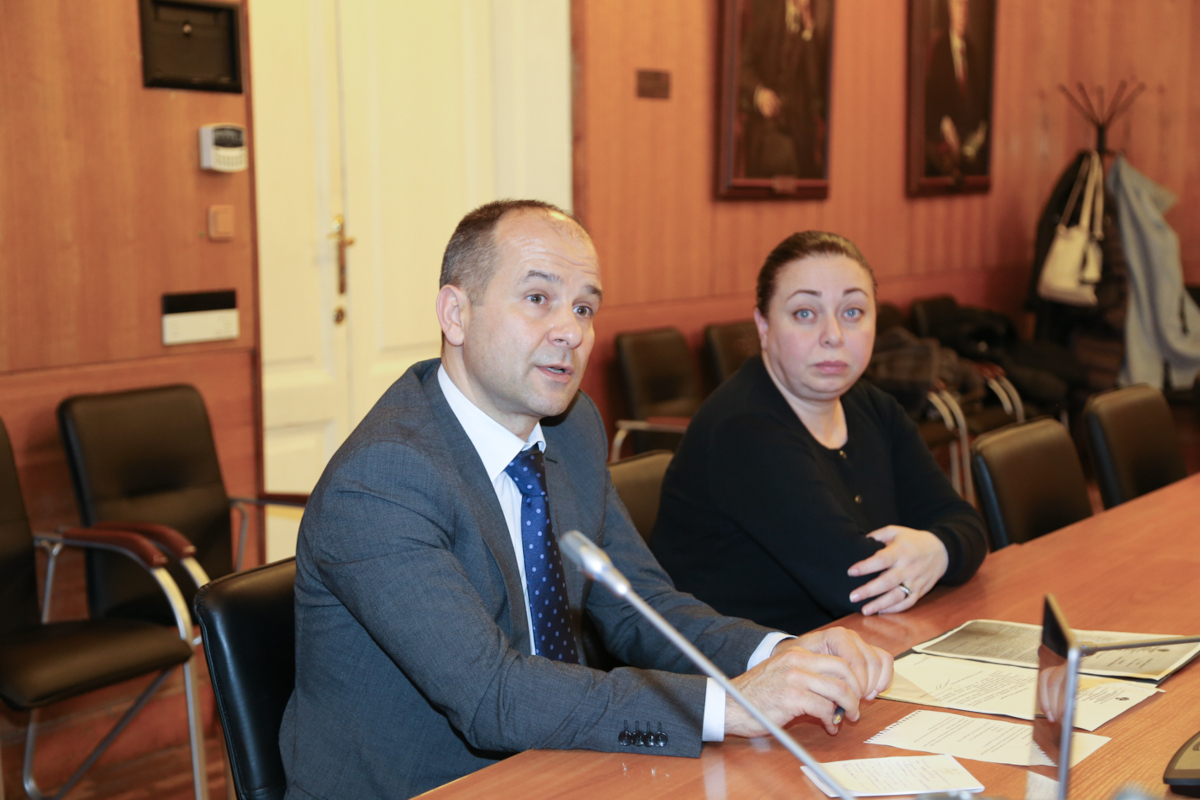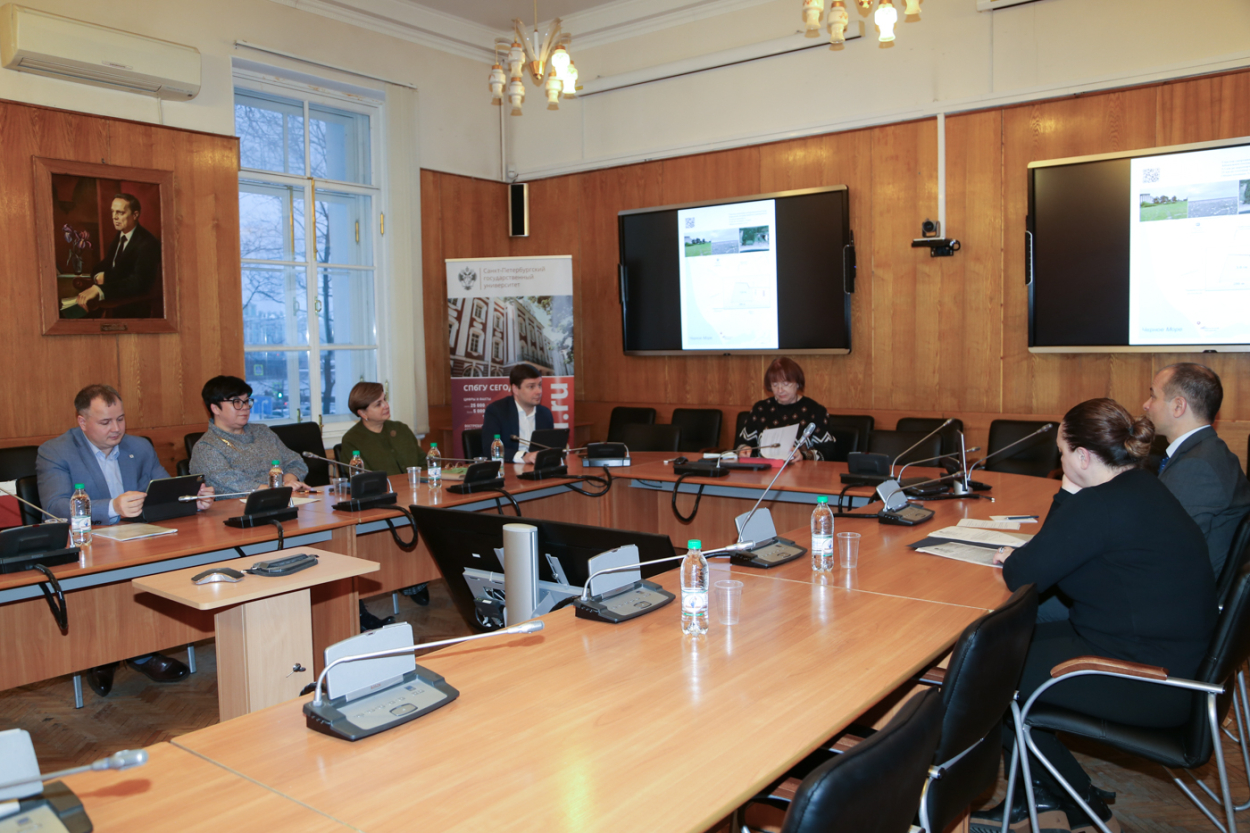St Petersburg University establishes cooperation with the Abkhazian State University
A delegation from the Abkhazian State University has visited St Petersburg University to discuss future areas of cooperation, and a possibility of establishing an inter-university research and recreational base with the participation of the University.
Cooperation between the two universities dates back to the Soviet era: in the late 1980s, a project was developed for a joint internship base with Leningrad State University and Kazan State University. Now, it is planned to renew it and create a modern sport, fitness and research complex.
‘We aim to develop strategic cooperation, for which there are many opportunities,’ said Maksim Gvindzhiia, Vice-Rector for International Affairs at the Abkhazian State University. ‘Despite the fact that it is a complex and large-scale project, it creates prospects for closer cooperation. We hope that our universities will be able to start developing it in future. In our opinion, this location has great potential: it is close to a would-be airport and container port, which will enable us to create a new point of attraction. We are looking forward to working with you.’ He added that the site, where the internship base is to be built, is in a picturesque area close to thermal springs. It will therefore be able to perform a successful recreational function.
Maksim Gvindzhiia also suggested that academic exchanges should be set up and that academics should be given the opportunity to take part in professional development programmes. The Abkhazian State University is ready to host Russian researchers − geographers, geologists and historians, including those studying the history of the Caucasus. In turn, experts in applied mathematics and archaeology would like to visit St Petersburg University.

Marina Lavrikova, Senior Vice-Rector for Academic Activities, said that, as a classical university, St Petersburg University is actively developing research in a variety of areas, so there could be many points of contact in both scientific and educational activities. Cooperation with the Abkhazian State University is of interest not only to biologists, but also to geneticists, botanists, ecologists, healthcare professionals, and experts in the field of tourism to name just a few. The Vice-Rector suggested considering the possibility of creating joint academic programmes, both degree and non-degree ones, within which it would be possible to hold joint events and send students to do internships.
‘Educational cooperation can be diversified. For example, we are ready to accept students to the University for exchange education as part of an internship. Master’s students from other universities often come to us to use our facilities for research work. Or it could be students participating in joint projects with St Petersburg University,’ said Marina Lavrikova. ‘Implementing programmes or individual disciplines is also possible in a distance format, which we have mastered well during the pandemic. I should also point out that St Petersburg University ranks first in Russia in terms of the number of its own online courses, and we are ready to provide them to you. If you wish, you can even implement individual disciplines in this format and conduct interim assessments.’
Elvira Zeletdinova, Vice-Rector for Teaching Methods at St Petersburg University, spoke about the peculiarities of research internships. She said that a programme is created for each lecturer to meet his or her needs. Internships at the University are held in two formats: teaching and learning internships or mastering a non-degree programme in the form of an internship. This results in a certificate of professional development at St Petersburg University. Elvira Zeletdinova also drew attention to the possibility of networking between universities, in which St Petersburg University has rich experience. You can find the list of offered academic programmes on the University portal.
The strength of the University lies in the fact that interdisciplinarity here becomes the impetus for new achievements.
Elvira Zeletdinova, Vice-Rector for Teaching Methods of St Petersburg University
Prospective areas of cooperation were listed by Sergey Mikushev, Vice-Rector for Research of St Petersburg University. They include agro-technologies, semiconductor physics and spectral tasks. Field practice and archaeological expeditions were also discussed. The Vice-Rector said that representatives of other scientific spheres provide great support to archaeologists in their work: for example, physicists perform spectral analysis of objects to establish their age, and chemists determine the composition of ancient building solutions and even restore the technology of their production.
Аs a result of the meeting, it was decided to exchange information and organise a meeting for researchers from the two universities in the format of video-conferencing in order to find areas of common interest. The parties also agreed to prepare a roadmap for the exchange of teachers, internships and the organisation of joint research projects.





